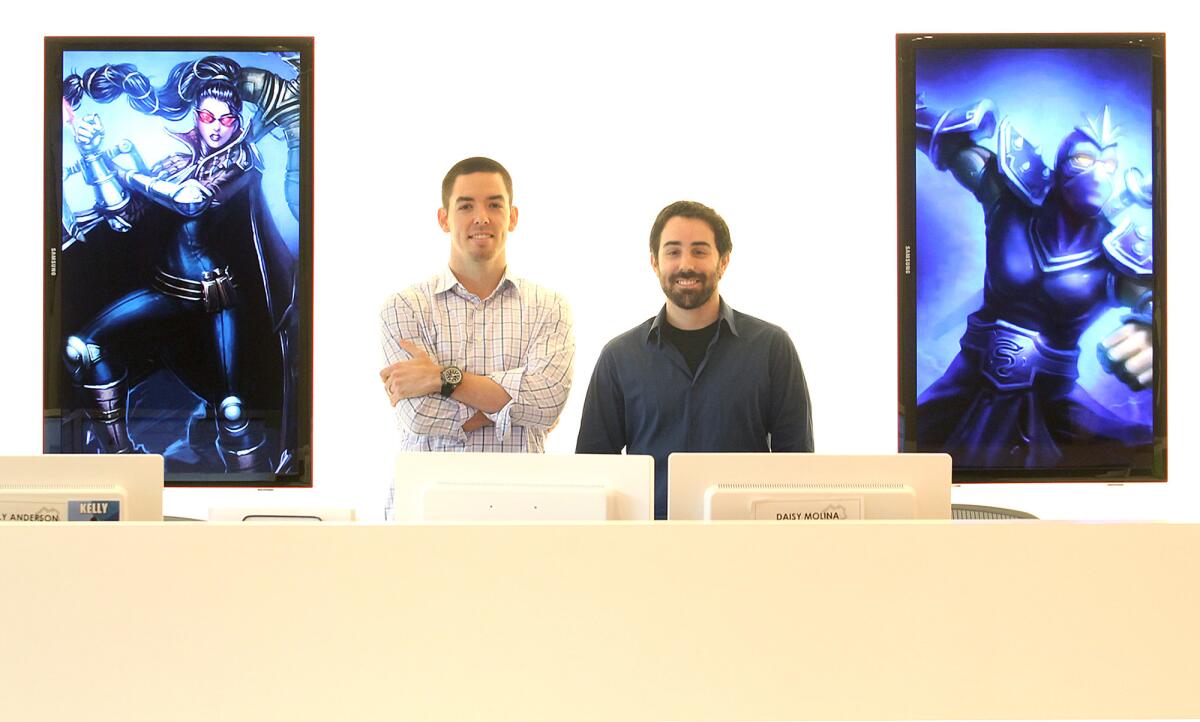Three ways eSports can become an even bigger business

Video game tournaments are a $500-million global business, but they have a long way to go before they can justify the big investments game-makers, team owners and others are making in them.
That's because it's not yet clear how video game competitions, known as eSports, will take shape compared to traditional sports. Executives from leading eSports companies including streaming app Twitch and "League of Legends" developer Riot Games made that clear during a panel discussion at the Milken Institute Global Conference on Wednesday.
Attracting women to eSports, fostering amateur competitions and striking more licensing deals are among the major initiatives that need to be undertaken for the industry to realize its potential, they said.
The role of women
Though women make up half of U.S. video game enthusiasts, only about a fifth of those who watch video game tournaments identify as women, according to research group Nielsen.
Gaming experts say that's partially because women tend to be heavier players of casual puzzle and word games that aren't yet associated with eSports. Someone will exploit that gap and broaden the audience for eSports, said Gregory Milken, a venture capitalist who co-owns the "League of Legends" team Immortals, and whose father, Michael Milken, founded the institute that organizes the annual conference..
Kevin Lin, chief operating officer of the male-skewing Twitch, said the company has been increasingly thinking about how to fit women into eSports. A small number of women play on professional teams alongside men, but there have also been women's-only tournaments formed (like how major sports work today). The best approach for eSports is unclear. Twitch has been moving to boost internal diversity as it ponders the issue though, Lin said, including by working with T.L. Taylor, a sociologist known for her studies of gaming communities.
The role of children
Pro athletes sometimes rise directly from high school to the pros. But those athletes have usually come through a rigorous system of travel clubs, sports academies and high-level amateur competition. The transition carries less of a burden for these athletes than it does for video game players, nearly all of whom reach the pros straight out of adolescence and with little formal training behind them.
Both for their psychological well-being -- and just to produce more highly skilled players -- many team owners and eSports officials advocate for the creation of amateur leagues that would uniformly funnel people to the pros. It's happening in corners of the world, but Lin described existing programs as "passion projects" at schools and universities. Both he and Riot Games Chief Executive Brandon Beck said a regulatory body, such as the NCAA in U.S., college sports could step in and formalize the scene.
"Video games aren’t shunned anymore, and I think it’s important to embrace that community -- it’s important for my alma mater to support eSports," said Lin, who graduated from Yale.
The role of licensing
Almost everyone involved in eSports expects tournament operators will generate a significant portion of their revenue from selling merchandise and the rights to broadcast matches in the same way as traditional sports.
"Fans will pay for this stuff," Milken said.
The current set-up in eSports brings in ad revenue from online streams of games, but there's rarely a large, upfront payment from a streaming service. In the case of TV network TBS, which plans to broadcast weekly eSports matches beginning later this month, it co-owns the tournament and thus has more control over costs.
But Riot Games, which operates the leading competition for "League of Legends," sees no reason to agitate for big licensing deals yet. More groundwork must be laid, Beck said, noting the company hasn't hired sponsorship salespeople.
"We know if we’re selling out arenas and having enormous viewership, it’s only a matter of time before advertisers understand the opportunity," Beck said. "Our focus is having a healthy enough ecosystem so players can dedicate [themselves] to the game. We’re extremely confident that over time as the world understands what this is -- and it's less a crazy notion -- that revenue will take care of itself."
Twitter: @peard33




